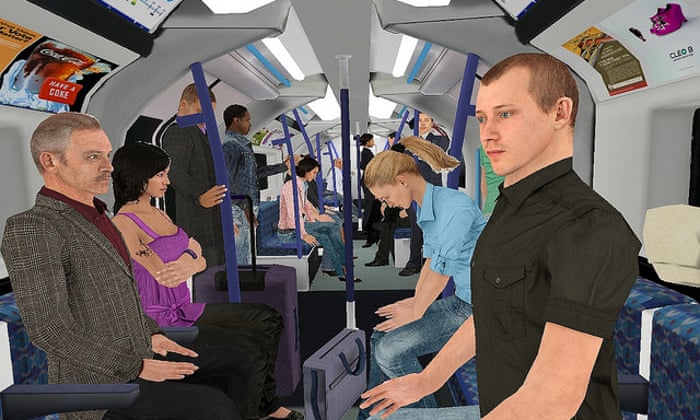If you haven’t heard about Oculus Rift, chances are you will quickly. Digital fact (VR) headset technology – inside the shape of the Oculus and its principal competitor, the HTC Vive, each launched in the consumer marketplace – is set to leap into the mainstream. For the gaming industry, massive dollars are inside the offing. Fb paid £2 billion to accumulate Oculus Rift; the returns, one imagines, should swiftly dwarf that parent.
VR can be about to convert gaming; however, the technology dates back to the past due 1960s and the so-called Sword of Damocles. Cumbersome and relatively unsophisticated, although it changed, the principle elements of VR were all present within the Sword. For the consumer, sensory facts from the natural world became outdated via data about an imaginary world that changed in reaction to their movements. A computer-generated photo, a display device offered the sensory statistics, and a tracker fed lower back the person’s position and orientation to replace the picture. The result turned into what you’d enjoy with Oculus Rift or the Vive these days: an “experience of presence” in an interactive, 3-dimensional digital global.
It isn’t easy to realize how incredible VR is till you’ve tried it. Even though what you see isn’t actual, your thoughts and body behave as if they were. It’s an extraordinary enjoy. But VR’s capability to “con” our brain means that it isn’t honestly the following huge thing in gaming: it may prove to be a very effective device for mental therapy.
It already is. Fear of heights (acrophobia) is typical – and successfully – handled using exposure therapy. The person is helped to face gradually more challenging situations, discovering as they do so that the chance they worry doesn’t materialize: they’re secure. What’s extraordinary is that exposure to VR usage is as effective as taking people into real conditions. That’s because if you take a person with acrophobia in a digital glass-fronted raise up a skyscraper, as an instance, their reactions (heart racing, belly churning, panicky mind) could be the same as if they were truely zooming to the pinnacle of the Shard. Ask anyone – phobia or no phobia – to step off a digital ledge and say they’re not often capable of accomplishing that (even though the “area” is virtually a space on our lab ground).
It’s now not simply fear of heights that VR seems so properly-suited to tackling: it works for an extensive range of tension problems. For instance, a recent meta-analysis of fourteen scientific trials determined that VR treatment is powerful for tackling spider and flying phobias. Evidence is also developing for VR’s ability to treat post-traumatic pressure ailments. So what, we puzzled, may want to do for patients experiencing any other type of situation marked by the worry of coming near danger: persecutory delusions?
Persecutory delusions – unfounded, strongly held beliefs that other humans intend to damage us – have historically seemed like a key symptom of psychiatric diagnoses, including schizophrenia. They are better conceived as the excessive end of a paranoia spectrum within the trendy population, with paranoid minds plenty greater not unusual than previously notion. Delusions are notoriously hard to deal with, so there’s an urgent need for new ways of tackling the trouble – that is in whiwheremes in. In a Scientific Studies Council (MRC) funded study at the College of Oxford, we completed the primary experiment in the usage of VR to deal with persecutory delusions. We wanted to tackle the essential gear we trust underlies paranoia: the feeling of hazard from other human beings. The handiest way to do this is to help the individual analyze from enjoying the conditions they dread are secure. As the feeling of safety increases, the fable diminishes.
 Understandably, it could be challenging for sufferers with intense paranoia to stand feared conditions. However, it’s easier with VR. Understanding that the scenario doesn’t help with confidence, it’s simple to offer the least hard conditions first. VR offers other sensible benefits. The fact that patients can try the identical situation as in many instances as they prefer and be right away transported from one difficult situation (a shop) to every other (an education) means that development can be a lot quicker than it might be if they were going through real-life eventualities. Moreover, sufferers in psychiatric wards frequently have very constrained access to real-world conditions.
Understandably, it could be challenging for sufferers with intense paranoia to stand feared conditions. However, it’s easier with VR. Understanding that the scenario doesn’t help with confidence, it’s simple to offer the least hard conditions first. VR offers other sensible benefits. The fact that patients can try the identical situation as in many instances as they prefer and be right away transported from one difficult situation (a shop) to every other (an education) means that development can be a lot quicker than it might be if they were going through real-life eventualities. Moreover, sufferers in psychiatric wards frequently have very constrained access to real-world conditions.
READ MORE :
- An internet-connected pregnancy test comes with cat videos and cooking tips
- Top 7 Social Video Tips & Takeaways from Social Media Marketing World
- What we learned from testing a ridiculous VR-ready gaming laptop
- Two early Bitcoin developers who worked directly with Satoshi Nakamoto weigh in on his real identity
- How Gaming Is Shaping the Future of Work
Our experiment concerned 30 intellectually fitness patients from Oxford Fitness NHS basis, all of whom were experiencing persecutory delusions (even after remedies together with antipsychotic medication). They held beliefs like: “a person intends to attack me,”; “people recognize what I’m questioning and could kill me,”; “others do things to belittle me,”; “human beings are intentionally trying to disillusion me.”
We started by assessing the severity of their delusions. Each affected person then spent five minutes in a situation that they discovered difficult (for instance, a visit to a neighborhood store) so that we could verify how they coped. Next, it turned into one session in our VR lab, throughout which they killed seven simulated journeys in an underground teach carriage and a lift, with the number of digital passengers increasing in every state of affairs. The members spent thirty minutes in VR, attempting the real-life scenario a second time. Finally, we reassessed the energy in their persecutory delusions.
In an added twist, we compared two unique VR cures. Sufferers were randomly allocated to the VR remedies, with 1/2 the sufferers undergoing exposure remedy (VRET) and the opposite members undergoing virtual truth cognitive remedy (VRCT). The VRCT institution, just like the VRET patients, took a virtual teach or lift trip. However, they were helped to do so without using protective or protection-seeking behaviors, warding off eye contact, or seeking break-out routes. This type of behavior makes us experience more security in the brief term. However, it fuels our fears by stopping us from mastering the fact that we aren’t truly in threat. In VRCT, we didn’t merely ask humans to desert their safety behaviors: we advocated the members to strive for things they could in no way contemplate in actual life – boldly drawing near the VR characters, for example, or observing them.
The experiment outcomes are posted these days in the British magazine of Psychiatry. They paint a hanging picture of the electricity of cognitive VR mainly. Straight away after the VR remedy session, eight of the 15 patients who had VRCT did not have persecutory delusions (i.e., they had more doubt than actuality in the threat ideals). There have been advantages for folks that’d had VRET, too, with 3 out of fifteen sufferers no longer meeting formal standards for delusions at the cease of the trying out the day. However, VR cognitive remedy outperformed VR publicity therapy in all the statistical testing.
While we asked sufferers to feel how strongly they believed their paranoid thoughts on a scale of zero-a hundred%, VRCT patients averaged eighty at the start of the checking consultation; however, forty-seven percent gave up. For the VRET organization, the reduction becomes plenty extra modest, from seventy-nine percent to 68%. Importantly, we noticed real-global advantages, too, with the VRCT group dropping by half in the self-reported distress of their second journey right into a feared situation compared to the VRET organization.
These gains were produced, remember, with just thirty minutes in VR. Believe in what will be accomplished with greater time. We don’t understand how lengthy the blessings gained in the preliminary test will be ultimately. However, the fulfillment of VR in treating anxiety issues indicates that they may properly undergo for longer than one may think. Therefore, We’re developing a prolonged VRCT using the brand-new purchaser equipment and plan to check it in a full medical trial. Digital reality isn’t simply here to live within the gaming world. We accept that it’s probably to play a relevant role in evaluation and remedy inside the intellectual health centers of the future.





